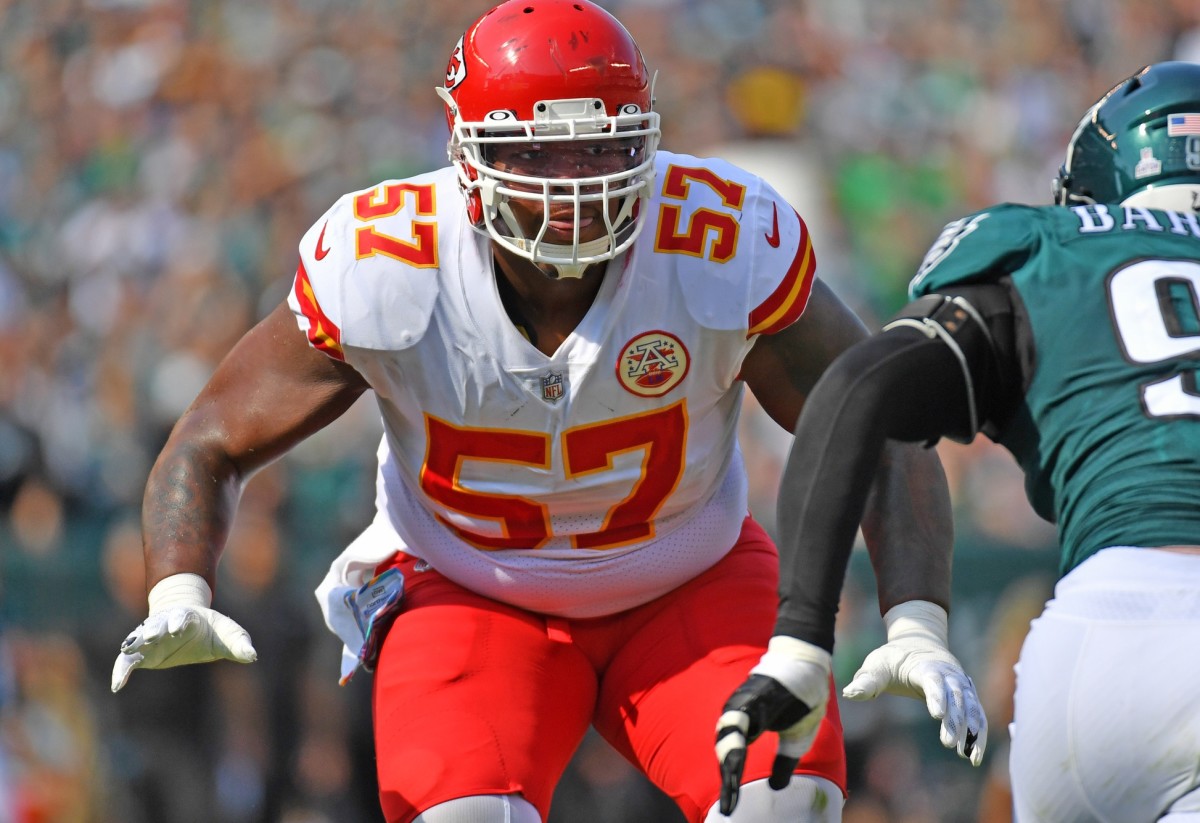It's Not All Bad for the Chiefs and Orlando Brown Jr.
From the time the Kansas City Chiefs traded for left tackle Orlando Brown Jr. until the second it was reported that both sides failed to agree on a contract extension, the optimism surrounding those extension talks seemed to follow an interesting arc from a majority perspective.
Last April, it was expected by many that Brown would play out his first season in Kansas City and then ink a long-term contract immediately thereafter. Following the end of the season and some early-offseason moves, hopes were still high that a deal would get done in due time. Even up until the last couple of weeks before the July 15 deadline, there wasn't an overwhelming sentiment that the two camps would end in a stalemate.
That stalemate ended up being the case, although it isn't the end of the world for either side. There is no bad guy in this situation.
Per Nate Taylor of The Athletic, the Chiefs' final offer to Brown was a six-year pact for $139 million. That deal, by average annual value standards, would have surpassed that of both San Francisco 49ers left tackle Trent Williams and David Bakhtiari of the Green Bay Packers (making $23.01M and $23M per year, respectively). The offer also contained the highest signing bonus for a left tackle ever.
On the surface, it appeared to be similar to the contract Brown wanted and perhaps better than anyone on the outside anticipated. He'd be the highest-paid left tackle in the NFL, after all, so why didn't he sprint to the office suites at Arrowhead Stadium to put pen to paper and ink the contract?
The structure of the offer, to the dismay of Brown's agent Michael Portner, was nowhere near what Brown's camp was looking for in actuality.

The first five years of Brown's contract offer (per Taylor) featured just $91M over the first five years with just two of them being fully guaranteed. An $18.2M-per-year average is a far cry from a top left tackle average, but rather a figure that falls just outside the top five in terms of AAV. That, along with the lack of security over the course of the deal, wasn't nearly enough for Brown and Portner to bite.
Modern NFL contracts oftentimes feature "ego years," to take a page from fellow Arrowhead Report analyst Conner Christopherson's book, to inflate the total value of the deal for highest-paid and optics purposes. Even with that and the gargantuan signing bonus in place for Brown, it wasn't enough. That final year of the contract almost surely wouldn't have been reached, thus making the deal as a whole much less appealing to the recipient. For Brown, a player wanting a true top-of-the-market offer, he was right to walk away from it. He's a young, ascending left tackle who shouldn't be shunned for chasing a hefty payday.
On the Chiefs' side of things, they were also right to not give Brown the world. Despite giving up a sizable amount of draft capital for him in the first place and having the positional importance attached to negotiations, they had plenty of leverage working in their favor. While Brown was solid in his first year as a Chief, he was exactly just that. An average to above-average left tackle shouldn't command the biggest payday in the history of his position, especially when he hasn't proven that he's worthy of it. By structuring their offer how they did, Kansas City's actions showed exactly how the franchise feels about Brown and his standing among the league's elite at this point in time.
Under the franchise tag, Brown is slated to make just under $16.7M this year. That's a huge raise from the $3.38M he made a season ago, so he isn't completely left without some sort of pay increase. Next year, when the Chiefs have the ability to tag him yet again, he'd be projected to make just under $18M. On the other hand, he also has the ability to prove himself right and the Chiefs wrong this year by elevating his game to new heights and showing why he's deserving of such a massive contract extension. The two sides can pick up negotiations again after the season and simply have to get to that point in one piece for everything to be back on the table.
The Chiefs and Brown came into negotiations with a common goal in mind: reach an agreement on a long-term deal that would make Brown the blindside protector of Patrick Mahomes for the next half-decade or longer. That end goal didn't get accomplished, but it's not all doom and gloom for either side of the contract teeter-totter.
Brown and Portner dug their heels in due to the underwhelming structure of the Chiefs' offer, and the Chiefs essentially took advantage of the immediate options they had while essentially telling Brown to go show them why they should change their minds next year. There's nothing wrong with that, and there doesn't have to be a long-term deal in place right now. A solution can still be had, although that outcome will be determined months into the future. If there's one thing these two sides have shown, though, it's that they're willing to wait.
